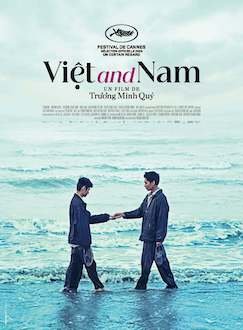Direction: Danny Boyle
Country: UK
If you’re into post-apocalyptic chaos, then 28 Years Later may be a visceral treat for you. Director Danny Boyle (Trainspotting, 1996; 28 Days Later, 2002; Slumdog Millionaire, 2008) and screenwriter Alex Garland (Ex-Machina, 2014; Civil War, 2024) reunite for the conclusion of a trilogy—and the launch of a new one. Several sequences were shot on the iPhone 15 Pro Max, with Anthony Dod Mantle’s stunning cinematography playing a crucial role in the film’s visual magnetism.
A community of survivors has taken refuge on a small island, accessible to the mainland only via a treacherous road. Twelve-year-old Spike (Alfie Williams) ventures to the mainland for the first time with his father, Jamie (Aaron Taylor-Johnson), to learn how to kill the infected and survive on his own. Along the way, he discovers the existence of Dr. Kelson (Ralph Fiennes), the only person who may be able to save his ailing mother (Jodie Comer).
Delivered with breathless pacing and indomitable energy, 28 Years Later veers from rage to reflection without ever slipping into monotony. The infected fade into the background, with the story focusing more intently on the emotional complexities of family and the fragile relationships among the uninfected. This made me want to go along unquestioningly. Vicious yet full of heart and humanity, the film ultimately becomes a celebration of life.
Boyle approaches the material with offbeat flair, making this installment tonally distinct from its predecessors. If you’re going to revisit a dusty premise, you’d better be inventive—and both Boyle and Garland rise to the challenge. The result is a bloody, wildly entertaining odyssey brimming with risks and perils. Nia DaCosta (Little Woods, 2018; Candyman, 2021) is set to direct 28 Years Later: The Bone Temple, scheduled for release in January 2026.








































